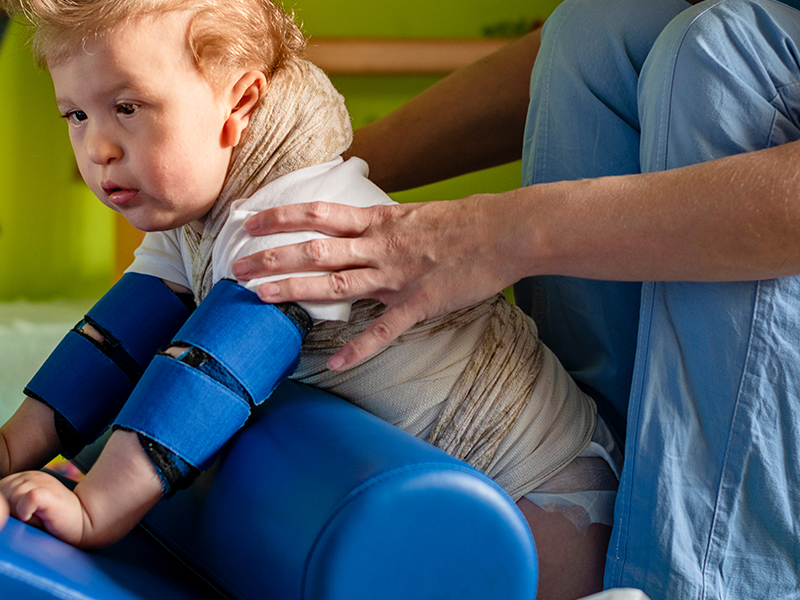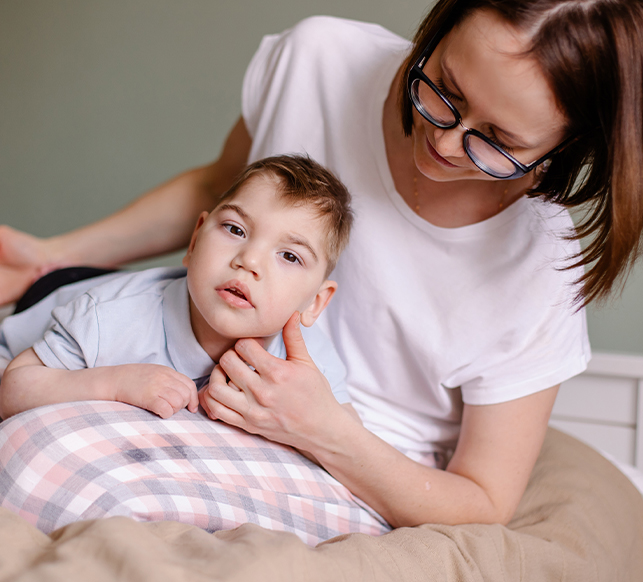Cerebral palsy is a condition that occurs at birth or soon after and it can be devastating for parents to find out that their child is suffering from the condition.
There is no way of knowing how cerebral palsy will affect your child. Muscle tone, coordination and balance can be severely affected in some cases. In others, the effects are a lot less extreme. When you have no prior experience of dealing with cerebral palsy, it can be difficult to know how to deal with it, and how to support your child so they can live a fulfilling and independent life, as much as possible.
These are some tips for looking after and supporting your child who is dealing with cerebral palsy.

1. Make Exercise a Priority
Your child doesn’t know they are any different to any other child, and they will want to enjoy the same activities. It is paramount that you ensure they are active from as early as possible, as this can be significant in how cerebral palsy affects them. As cerebral palsy {link to cerebral palsy} affects movement, the more active they are from an early age, the less severe the condition may be. Some children are not able to walk with the condition, or they may struggle, but it is important to encourage them to do as much as they can. Don’t give up on your child because they struggle, keep trying with every activity, and make sure they are getting a good level of exercise
every day. An active lifestyle is good for everyone, but it is particularly beneficial for children with cerebral palsy.
2. Arrange Physiotherapy
Physiotherapists are ideal for supporting a child with cerebral palsy, as they can help improve the physical ability of your child and improve problems with movement. It is a good idea to arrange physiotherapy from as young an age as possible. If your child is also having trouble with speech, you may want to seek the help and advice of a speech therapist too. It is also a good idea to try and do some physiotherapy with your child in your own time too, as although it is time consuming, it can really help support your child with their development.
3. Monitor Health
It is natural for your child to be dealing with a range of healthcare providers, and you should make sure you consistently stay informed of your child’s health and any changes you need to be aware of. It is not easy dealing with a child with cerebral palsy, there are lots of challenges along the way, and there will be difficult decisions to be made. It is much easier for everyone if you are involved in the process and that you are as committed to supporting your child as the healthcare providers. It can make a huge difference when everyone is in it together.
4. Healthy Diet
Children with cerebral palsy have weaker bones than other children, and as such, it is even more important to ensure you provide them with a healthy diet. This is the case for anyone, but particularly important for children with cerebral palsy. It is important to provide them with a diet which has plenty of nutrients to keep them healthy and fit. In some cases, children with cerebral palsy cannot eat via their mouth, and may have a GT, but it is still possible to ensure they still have the necessary nutrients to maintain a healthy lifestyle.
5. Develop a Support Network
It is important to have a support network of good friends and family around you. It is also worth linking up with relevant groups for parents dealing with a child with cerebral palsy. This can be a great way to share tips and advice, and to ensure you never feel alone. Speak to friends and family and ask for their support when you need it.
6. Keep a Positive Attitude
It can be confusing for children that are trying to cope with cerebral palsy. They are likely to feel confused and wonder why they are different to other children. Although it is an extremely challenging situation, it is important to maintain a positive attitude, but for your own state of mind and that of your child. A positive frame of mind can help their condition and allow them to focus on the activities they are able to do, instead of those they cannot do.
7. Find Resources
There are plenty of resources for sufferers of cerebral palsy, and their families. You should use as many of these resources as possible, so that you understand the condition and how best to deal with it. Many resources are free of charge.
8. Look After Yourself
You won’t be in a position to be able to take care of your child, if you are not looking after yourself. Make sure you are getting plenty of sleep, you are enjoying other activities to help relax your mind and keep your stress levels down and that you are avoiding difficult situations. Your health is just as important as your child’s, as they need you more than ever.
9. Enjoy Outdoor Activities
Although it can be more demanding being outside with a child with cerebral palsy, it is important for them to socialise, and to be involved in outdoor activities. Don’t just stay at home, make sure you take them out to enjoy life. There is no need to hide away, your child has every right to enjoy the same activities as any other child – and they should be.
10. Consider a Carer
You may also want to consider a carer to help with day-to-day activities, such as feeding, socialising and for helping support social activities. Carers can provide the care services you need, as and when you need them.
At Harmony Healthcare, we are committed to providing care services to children suffering from cerebral palsy, and their families. We can offer a range of care services, including respite care {link to respite care}, which can give you a much-needed break whenever is it required. We are completely flexible with the care we provide, and operate 365 days a year, 24 hours a day for your convenience.
